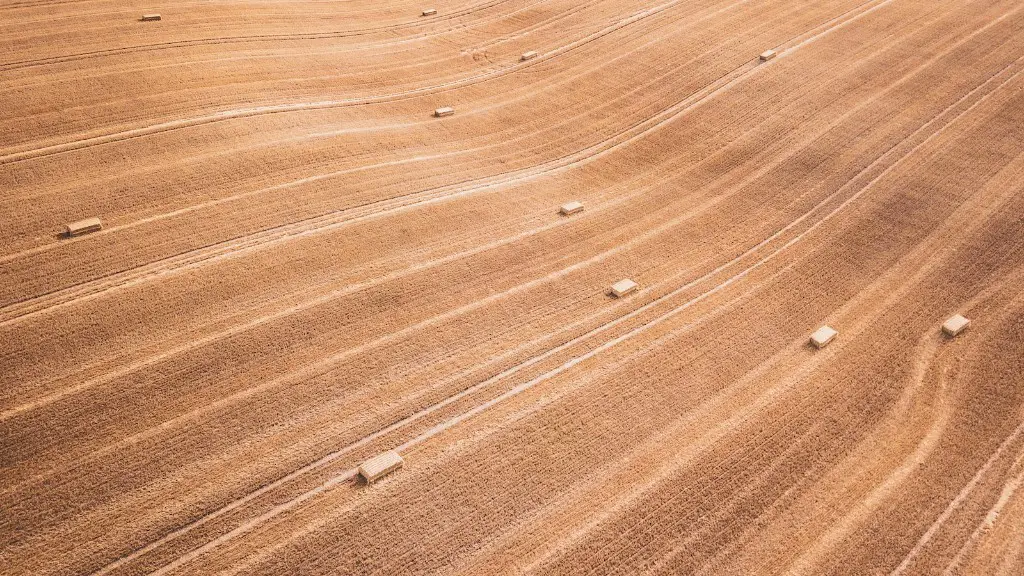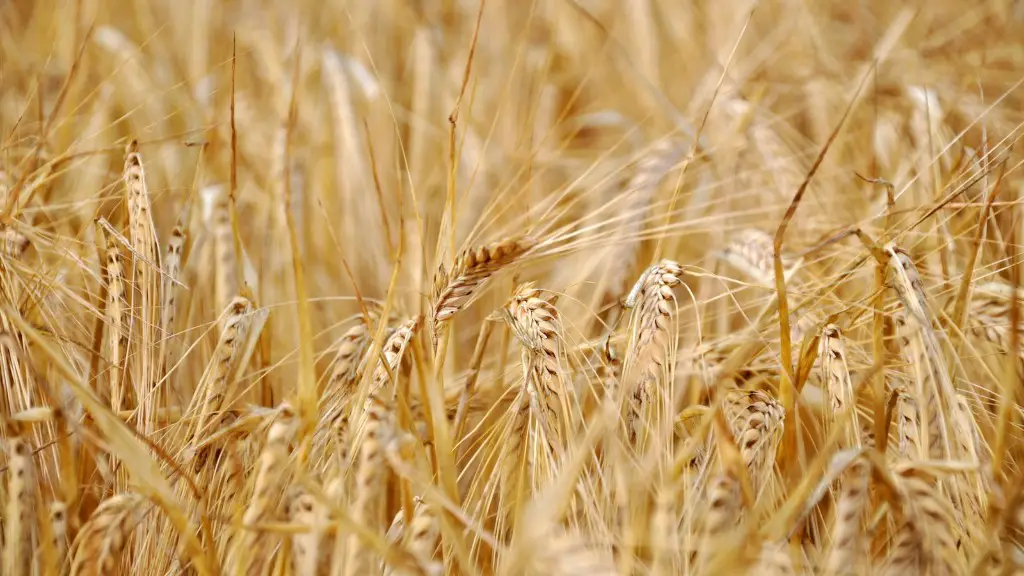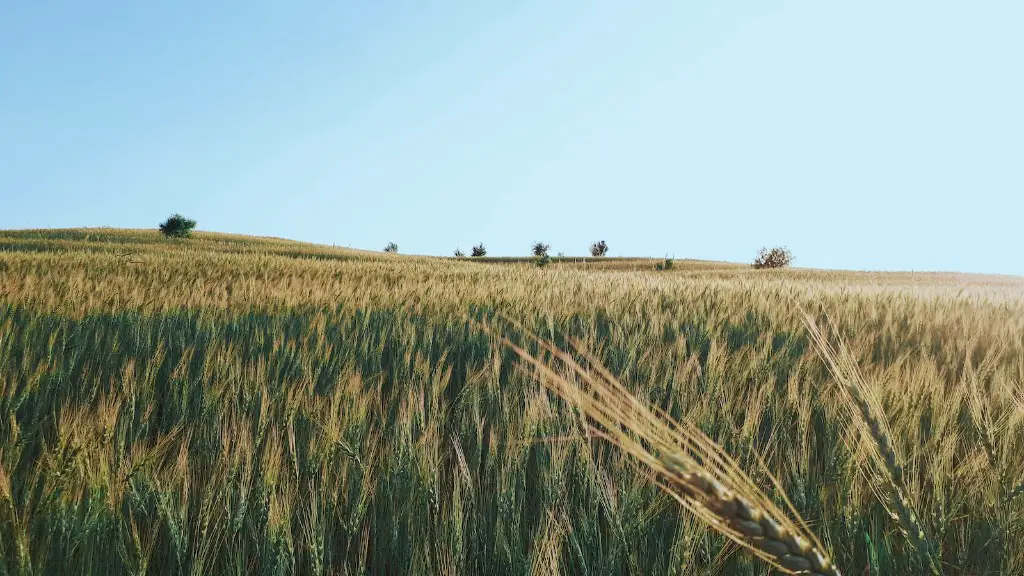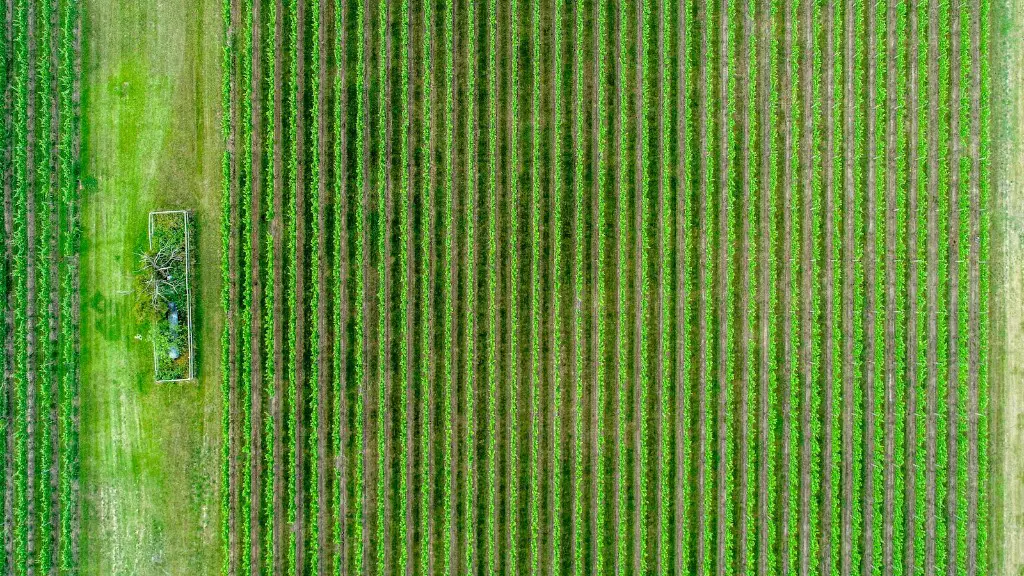Agriculture is the mainstay of the human diet and has a significant impact on the ecosystem. Agricultural activities can cause changes in the landscape, which can lead to soil erosion and loss of productivity. Intensive farming practices can also lead to problems such as water shortages and soil contamination.
Agriculture has a tremendous impact on ecosystems. It is one of the main drivers of deforestation and habitat loss, as well as being a major source of water pollution and greenhouse gas emissions. Agriculture also has a significant impact on biodiversity, as it is responsible for the loss of many species of plants and animals.
What are 3 effects of agriculture on the environment?
Large-scale, conventional farming is not sustainable in the long run. It contributes to climate change, pollutes air and water, and depletes soil fertility. We need to move towards more sustainable farming practices that focus on diversification, conservation, and using renewable resources.
Crop production can have a negative impact on the environment, particularly if it involves the use of harmful chemicals and pesticides. Soil erosion, nutrient and pesticide runoff, and irrigation can all lead to pollution of the air and water, and degrade soil quality. These activities can also diminish water supplies, which can be a major problem in areas where water is already scarce.
What are the 5 major consequences of agriculture
Agriculture has a big impact on the environment, both positive and negative. It can lead to soil erosion, water pollution, and contribute to climate change. It can also help reduce CO2 levels, improve air quality, and provide habitat for wildlife.
While agriculture can have negative impacts on the environment, it can also have positive impacts. Agriculture can trap greenhouse gases within crops and soils, or mitigate flood risks through the adoption of certain farming practices. These positive impacts can help offset the negative impacts of agriculture and improve the overall environmental impact of the agricultural industry.
What is the relationship between agriculture and ecosystem?
Agriculture is a critical sector of the economy and produces much more than just crops. Agricultural practices have a wide range of impacts on ecosystem services, including water quality, pollination, nutrient cycling, soil retention, carbon sequestration, and biodiversity conservation. In turn, ecosystem services affect agricultural productivity.
Agricultural pollutants can have a significant impact on water quality. They can be found in lakes, rivers, wetlands, estuaries, and groundwater. They can also contaminate drinking water.
The main pollutants from agriculture are sediments, nutrients, pathogens, pesticides, metals, and salts. Animal agriculture has a particularly large impact on pollutants that enter the environment.
Agricultural pollutants can cause a variety of environmental problems. They can degrade water quality, harm aquatic life, and contaminate drinking water. They can also contribute to climate change.
There are a number of ways to reduce the impact of agricultural pollutants. Farmers can use best management practices to reduce soil erosion and runoff. They can also plant cover crops and use buffers to filter pollutants.
What are pros and cons of agriculture?
The pros and cons of agriculture are numerous, but there are some clear advantages and disadvantages to the system. Agriculture allowed humans to domesticate plants and animals, which led to the development of civilizations. However, agriculture also lead to conflict over access to food resources, and weather can damage crops.
Setting the table to address the triple challenge means addressing all three challenges at the same time. This is the only way to make sustainable progress in any of them. We need to look at the big picture and find solutions that work for all three challenges.
Are there any negative effects of agriculture
Agriculture contributes significantly to greenhouse gas emissions, through enteric fermentation (emissions from livestock) and soil management (emissions from manure). The government has implemented financial assistance programs to enable farmers to reduce their greenhouse gas emissions. These programs provide incentives for farmers to adopt practices that will mitigate their emissions, such as installing methane digesters and practicing crop rotation.
Agriculture is the backbone of many economies, providing food and livelihoods for millions of people around the world. However, the sector is facing a number of challenges, including the loss of agricultural land and the decrease in the varieties of crops and livestock produced.
These problems are having a negative impact on the food security and livelihoods of many people, and need to be urgently addressed.
Why agriculture is important in the balance of ecosystem?
Ecological agriculture improves pollination, which in turn improves crop yields. Ecological farming takes advantage of the natural ecosystem services, such as water filtration, pollination, oxygen production, and disease and pest control. This results in a more efficient and sustainable production system that is less dependent on inputs such as pesticides and synthetic fertilizers.
Agroecosystems are a type of ecosystem that is specifically designed and managed by humans in order to produce food, fiber, fuel, and other products. These ecosystems are often quite different from natural ecosystems, and as such, they can have a large impact on the environment.
Is agriculture part of the ecosystem
A farm is an ecosystem because it is made of living and non-living things that interact and exchange energy. The farm ecosystem is different from a Forest or a meadow ecosystem because humans control many of the interactions among the things on the farm.
If you’re looking for a country with a modern, developed economy and plenty of opportunities for upward mobility, Canada is the place for you! With a strong focus on education and a commitment to innovation, Canada is a great place to start or continue your career. And, with a population that is ethnically and religiously diverse, you’re sure to find a community that suits you. So why not relocate to Canada today?
Why is agricultural waste a problem?
Environmental pollution is one of the most pressing issues facing the world today. Agricultural wastes are a significant contributor to this problem. Most of the agricultural wastes generated is disposed of by incineration, burning at the site, or digging back into the soil. These methods of disposal release harmful pollutants into the air, water, and soil. These pollutants can have a hazardous impact on human health. They can also contaminate food and water supplies.
Agriculture is both a victim of and a contributor to climate change. On the one hand, agricultural activities contribute approximately 30 per cent of total greenhouse gas emissions, mainly due to the use of chemical fertilizers, pesticides and animal wastes. On the other hand, agriculture is highly vulnerable to climate change, as it is heavily dependent on stable weather patterns and predictable water supplies. Climate change thus presents a major challenge to the future of agriculture. In order to meet this challenge, it is essential that farmers adopt more sustainable practices, such as using organic fertilizer and manure, and that policy-makers provide the necessary support and incentives.
Conclusion
Agriculture can have a positive or negative effect on ecosystems. On the positive side, agriculture can provide food and shelter for wildlife, and can create habitat for pollinators and other important creatures. On the negative side, agriculture can lead to habitat loss and fragmentation, and can lead to pollution of air, water, and soil.
Agriculture has a profound impact on the ecosystem. It is the foundation of the food chain and affects the water cycle, nitrogen cycle, and carbon cycle. Through photosynthesis, agriculture helps to produce the oxygen we breathe. Agriculture also provides habitat for many animals and plants.





